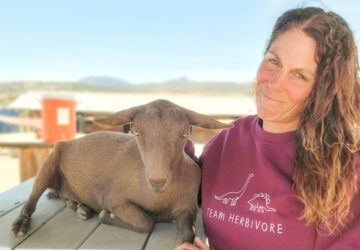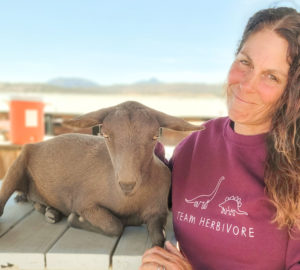
(Source: Rhett A. Butler / Mongabay.com)
The Problem with Palm Oil
Welcome to one of the most controversial and complex topics among the vegan community. Palm oil is made from the fruit of a palm tree, thus technically fulfilling the definition of what it takes for a food source to be vegan. However, the debate on whether palm oil should be considered vegan is fueled by the undeniable deforestation, human rights violations, and species extinction that the production is causing.

(Source: Mattias Klum, National Geographic Creative)
The use of palm oil is so globally widespread that even those that are against its use may still have plenty of it lurking throughout their home. It can be disguised by common synonyms such as vegetable oil, palm kernel, sodium laureth sulfate, and over 200 other misleading synonyms. These can be derived from either palm and/or coconut, making the distinction nearly impossible for consumers.
It is estimated that nearly half of all packaged products in a grocery store contain palm oil in some form. It’s versatility makes it able to be used in biodiesel and biofuel, cleaning supplies, shampoo, soaps, and cosmetics.
Sustainable or Responsible Palm Oil?
Some companies, such as Earth Balance, are listening to consumer concerns and being forthright with their plans to shift towards using palm oil sourced only from those verified by the Palm Oil Innovation Group. POIG and similar groups are working to find a solution to the rising demand of palm oil while attempting to address the critical issues surrounding its use.

(Source: Financialtribune.com)
Wholesome Solutions
Avoiding or minimizing your intake of processed food will cut down the demand for palm oil, and all other processed oils. Since palm oil is the highest-yielding with low amounts of energy, fertilizer, and pesticides needed for production, swapping it for an alternative would not be a logical long-term solution.
Bonus: Cutting out processed foods is a huge win for your health!
While palm oil is not derived from an animal, it does contribute greatly to animal suffering and planet destruction and thus does not align with Wholesome Culture’s healthy, plant-based living philosophy.
The next step would be contacting the companies directly and give the demand to adopt better business practices. Consumers do have the power to influence the big food industries, and that all starts with public awareness and purchasing choices.








